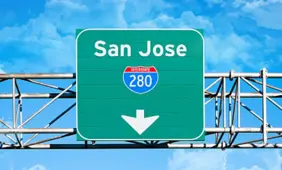Sri Lanka's Parliament Approves Gambling Regulatory Bill
Sri Lanka's parliament has approved the Gambling Regulatory Authority Bill with amendments, establishing a new framework to oversee and manage the country's gambling industry. The legislation was introduced under the direction of President Anura Kumara Dissanayake, who also serves as Minister of Finance, Planning and Economic Development. Following its passage, the bill will come into force as the Gambling Regulatory Authority Act once endorsed by the Speaker of Parliament.

The new law creates the Gambling Regulatory Authority (GRA), a centralized body tasked with supervising gambling operations in Sri Lanka. Its responsibilities will include the collection of gambling-related revenue, enforcing transparency and good governance, and addressing illegal gambling activities.
Related: Sri Lanka Closer to Legalizing Online GamblingBeyond regulatory oversight, the authority is expected to help standardize gaming establishments, minimize social harm, contribute to the development of tourism, and support overall economic growth.
The Act replaces several existing statutes, including the Horse Racing Betting Ordinance, the Gambling Ordinance, and the Casino Ordinance. By repealing these older laws, the government seeks to consolidate gambling oversight under a single regulatory body and introduce modernized governance standards across the sector.
The timing of the bill's approval comes shortly after the launch of City of Dreams Sri Lanka, the country's first integrated casino resort, which opened earlier this month. With new large-scale gaming facilities beginning to operate, the creation of a formal regulator is being seen as a significant development for the future of Sri Lanka's gambling industry.
More Regulation
Confidence in the New Legislation Varies
Concerns have been raised about the independence and structure of the Gambling Regulatory Authority. Policy experts and analysts have suggested that while establishing a regulator is essential, the current framework may fall short of international standards of autonomy and oversight.
Research consultant Sudaraka Ariyaratne stated that in regulatory theory, credibility depends on independence, but the Gambling Authority Bill does not provide that safeguard. He argued that giving extensive authority to the Minister of Finance reduces the perception of integrity in the regulatory process.
Further criticism has emerged regarding the bill's lack of strong protections for players and vulnerable groups. Local media outlet The Sunday Times highlighted shortcomings compared to Singapore's regulatory model.
According to its analysis, the Sri Lankan framework is weakened by insufficient independence, unclear suitability requirements for licensed operators, and the absence of detailed harm-minimization measures such as a comprehensive exclusion system for problem gamblers. The outlet also pointed to limitations in the enforcement powers provided to address online gambling, describing them as outdated in a digital era.
Despite the criticisms, the Gambling Regulatory Authority Act is set to reshape Sri Lanka's gaming landscape. The effectiveness of the GRA will likely be judged on its ability to balance revenue generation with robust regulatory enforcement and responsible gambling protections as the sector expands in the years ahead.
RELATED TOPICS: Regulation
Most Read
Must Read
 Interviews
Interviews
Exclusive Interview: Levon Nikoghosyan Shares AffPapa Winning Formula for Successful iGaming Events
Dec 03, 2025 Interviews
Interviews






Review this New Post
Leave a Comment
User Comments
Comments for Sri Lanka's Parliament Approves Gambling Regulatory Bill